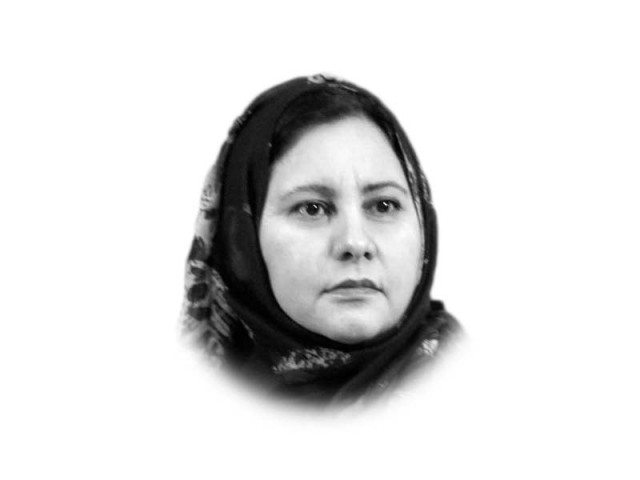Iraq’s century of humiliation in the globalised age
No nation of the world deserves to be occupied, its people killed and its infrastructure razed to the ground

The transnational state (TNS), as advocated by William Robinson, is an evolved stage of globalisation and its capitalism twin, which in turn is creating a transnational class (TNC), “characterised by the rise of truly transnational capital and the integration of every country into a new globalised system of production and finance”. Robinson’s idea is somewhat strange, considering the fact that in today’s globalised world, nation-states still have their interests, their physical boundaries and security concerns, and that growth is still measured in terms of the GDP of individual states.
Quoting Iraq’s example, Robinson tries to explain that the invasion of Iraq, though seems to be a unilateral show of America’s neo-imperialism, “yet the very first transnational oil company to be assisted by the US State Department in the wake of Washington’s invasion and occupation was the ‘French’ oil company Total, followed by Chinese oil companies who were able to enter the Iraqi oil market thanks to the US occupation”. But does this example prove that an evolved structure like a TNS has come to be in international politics, or does it reveal a relatively old architecture, like the one we saw in China’s century of humiliation?
Indeed, China’s century of humiliation was a transnational one. Once defeated in the First Opium War, the Chinese were subjected to a series of unequal treaties whereby several ports and land-areas were distributed among colonial powers including the Westerns and Russia and Japan. In 1899, US secretary of state John Hay sent notes to France, Germany, Britain, Italy, Japan, and Russia, declaring the Open Door Policy, which stated that all nations, including the US, could enjoy equal access to Chinese markets as long as Chinese territorial integrity, as well as the status of the treaty ports is upheld. At that time, companies of these countries gained special concessions on railroad rights, mining rights, loans, possession of trade ports, etc and the railroad loans were appropriated by an international banking consortium.
Compare that with the situation in Iraq today, where the transnational elite, previously referred to as multinationals, who again mostly belong to the states that were victors of WWII, have furthered an open-door Iraq policy between them. So that, since the invasion, contracts have been gained by Halliburton (military/oil), Veritas (military/finance), the Washington Group (military/oil), Aegis (military), International American Products (electricity), Fluor (water/sewage), Perini (environmental cleanup), Parsons (military/construction), First Kuwaiti General (construction), HSBC Bank (finance), Cummins (electricity) and Nour USA (oil), to name just a few. The Iraq Britain Business Council founded in 2009 has, among several other projects, co-signed oil projects between the China National Petroleum Corporation and British Petroleum. This defies the notion that the newly evolving TNC is stateless, rather each of these companies has a home state, and without the military and political clout of their home states, none of them would stand as the TNCs they are today.
The sad story of oil production in Iraq is that, during all the difficult time of the Iran-Iraq war oil-production was constantly excelling, with a 2.8 million barrels per day in 1989, and a national GDP peaking to $10,000 that year. But the moment the war ended, the US, who had stood behind Iraq throughout the war, turned bitterly against it, placing sanctions in the wake of the Gulf War (1990) — wherein it amassed 700,000 forces within a few days in tiny Kuwait to attack and completely destroy the Iraqi military. The sanctions plummeted the GDP to about $1,000 by 2002 and an oil production down to 1.3million barrels per day. And now with the US invasion, the oil production had peaked to 4.6 million barrels per day in February 2020 again, with a corresponding $5,300 GDP — but does this number present the wealth of the average Iraqi?
In May this year, the Special Representative of Secretary General for the UN Assistance Mission for Iraq announced that the poverty rate in Iraq would double to 40% from around 20%, where it currently stands, “the Iraqi economy is expected to contract by 9.7% in 2020… (and) there will be a decrease in economic opportunities.” How is there a 350% increase in oil production and only ‘decrease’ in economic opportunities for the Iraqi people? The people, whose cities have been bombed to ruins from Fallujah to Mosul; of whom over three million were killed and over two million displaced during the war; and who have been suffering disease and death due to shortage of food and medicine for the last four decades.
Is it the oil-resource curse that has brought the Iraqi people to this deplorable condition? Or, have the US-installed political system and after them the Iranian influence over Iraqi politics, been the main reasons behind mischiefs such as the case of “an estimated $239.7 billion has left the country illegally since 2003”, currently being inquired by the Iraqi parliament. Most of this money was indeed oil money, meaning that both oil and revenue have been conveniently syphoned away from Iraq, leaving its people in harrowing dearth.
Indeed, in this preview, the so-called TNS apparatuses, as the would-be global ruling class, seem to be only the biggest enemy of humanity.
As the Iraqi government struggles to pay debts and salaries, and as it watches its economy plunging into chaos and crisis, there is scant chance of getting any relief from the so-called “transnational” extortion system. And the vacuum is again being filled with China, who has made a $2 billion oil deal with Iraq, and will be paying upfront for every yearly supply of the fuel, that too at zero interest and with a premium over the price.
Surely Iraq’s extortion and plunder have been transnational, and it has also been most humiliating and dehumanising. No nation of the world deserves to be occupied, its people killed and its infrastructure razed to the ground and the dignity of its people put down to the level that the Iraqis have faced at the hands of the West for the last four decades — that too just for the satiation of the West’s vile intoxication, that compulsively demands more material wealth and power!
















COMMENTS
Comments are moderated and generally will be posted if they are on-topic and not abusive.
For more information, please see our Comments FAQ